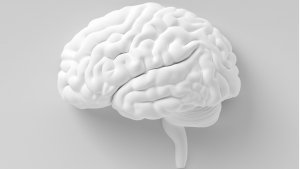Mind Gym: Can You Really ‘Workout’ Your Brain?
Is it possible to improve the performance of our brains, in the same we can our bodies?

Most of us now recognise the importance of looking after our bodies – we go to the latest exercise classes, buy cutting edge sports kit or stock up on the latest trendy superfoods to keep us fit. So why is it that so many of us tend to forget about one of our main, and perhaps the most important organs – the brain! Why do we bombard our bodies with workouts, but not our minds?
So, in a bid to answer all our brain workout questions, we sat down with Dr Liron Jacobson, head of neuroscience at Peak – Brain Training to get some insights.
We start by looking at what kinds of workouts we can do with our brain, and the science behind it. Like the infamous ‘leg day’ at the gym, is it possible to target specific areas of the brain?
Dr Liron explains that “the brain has different parts, each is responsible for different functions, but they often work jointly to perform a certain task, which can be referred to as Neuronal networks.
"There are specific areas which control our memory skills, ability to pay attention, make decisions or do numerical calculations, for example. Fortunately for us, each of these parts can be challenged and exercised by doing certain activities”
As we talk about challenging our brains, the key term that keeps coming up is ‘Neuroplasticity.’ She explains “the term refers to the fact that, as a whole, our brains are not static. Therefore, many activities can affect the brain functionality and can be considered as ‘exercising the brain’ – it is what stands behind the learning process.
"Because brain functionality is a result, among other things, of what we actually do with our brains, it is important to pay attention to what we do daily and what we are exposing our brains to. For evidence of this we can look to studies of musician’s brains.
"These show several significant changes compared to non-musicians. There is also evidence that shows that disadvantaged children who were exposed to music classes performed better in cognitive tests compared to a control group.”
When we exercise our bodies, the general rule is that the more frequently we complete a task, the better we get. If you lift weights, you build more muscle, so can build strength to lift more.
The same is true of our brains, Dr Liron says “the brain is comprised of about 100 billion neurons in an average adult, so when we repeat a task over and over again the neural networks that are responsible for a specific activity work more smoothly.”
It seems that this isn’t the only thing related to neural networks, Dr Liron says, “challenging the brain with new activities may also create new pathways of neural networks.” This goes back to the neuroplasticity we mentioned before.
"It means that taking up a new challenge – whether it is learning a new language or picking up a new musical instrument – could actually create new neural paths that could make other skills and activities easier.
It seems that you can indeed give your brain a workout, just like your body – and maybe you have already been doing so without even realising it! But what if you’re struggling with something specific like memory or a lack of focus?
We asked Dr Liron if it is possible to target specific skills: “if you want to exercise your memory, attention or numerical skills, you could try to challenge yourself with different exercises to stretch your cognitive limits or try brain training apps like Peak – you may find they exercise your brain with tasks that you wouldn’t typically do in your normal day-to-day routine.”
We all know that if we neglect our bodies we can gain weight and lose strength, but one of the things we were very curious about is what happens if, without realising, we start to neglect certain parts of our brain.
Dr Liron gives an example: “If we exercise our legs they will become strong, but if we stop using them they will become weaker and eventually ineffective. As with our bodies, if we don’t use parts of our brain by not doing specific activities we used to do for a long time these parts may become less effective.
"This is the reason why it is important to keep using all parts of the brain, and challenging it with a variety of activities. In the modern world we rely on our smartphones to remind us of simple things like our partner’s phone number or the route to a place we have already been, so we are already not using our brains for tasks we used to do in the past.”
As you juggle your businesses and your career, you probably reach the end of the working day feeling like your brain is well and truly worked out. This brings us to the importance of rest and recovery, and how to avoid the dreaded ‘burnout’.
Dr Liron is keen to stress that sleep is essential to keep our brains performing well, which is why the circadian rhythm our body follows is designed for us to sleep every 24 hours: “Sleep is an amazing process which allows the brain to refresh and it supports brain plasticity.”
However, she explains that sleep isn’t the only rest we need when we’re working hard: “During the day it is important to take breaks and do something else. You could have a proper conversation with a friend, go out for a walk or spend a few minutes playing a game for a distraction – you may find it makes you more productive than just trying to focus relentlessly on the same task all day.”
Dr Liron Jacobson is the Head of Neuroscience and a product manager whose work provides the solid scientific background behind the Peak brain training app. Download the app for free from the App Store or Google Play.
Thanks for signing up to Minutehack alerts.
Brilliant editorials heading your way soon.
Okay, Thanks!


